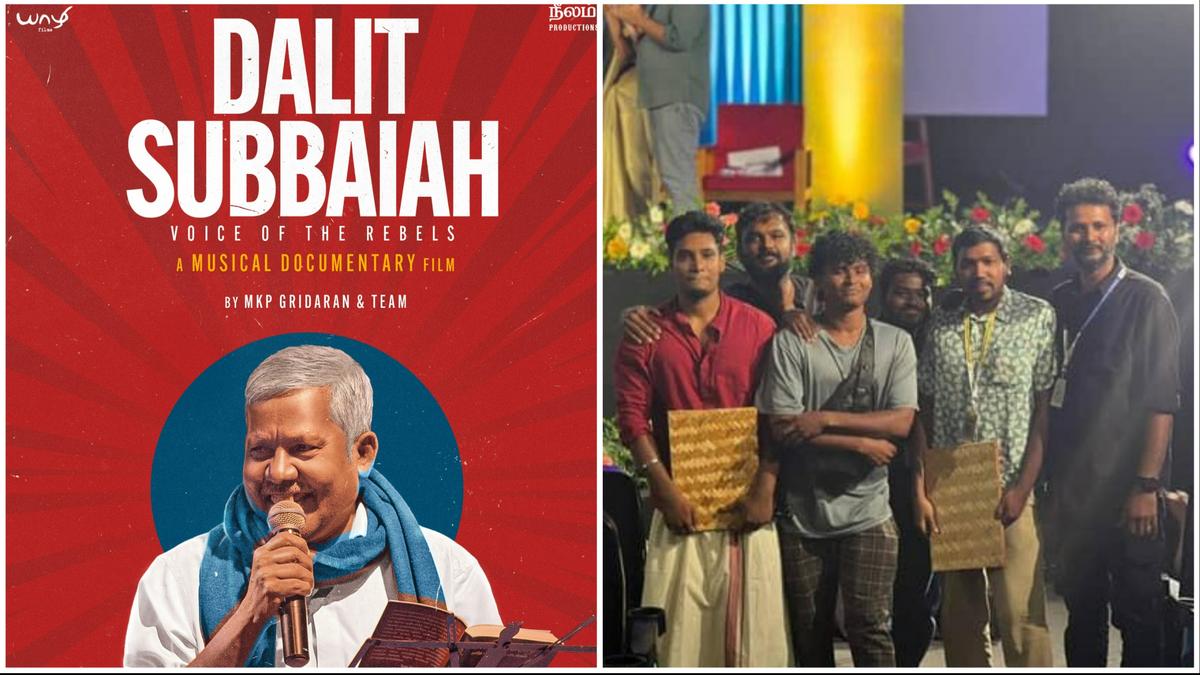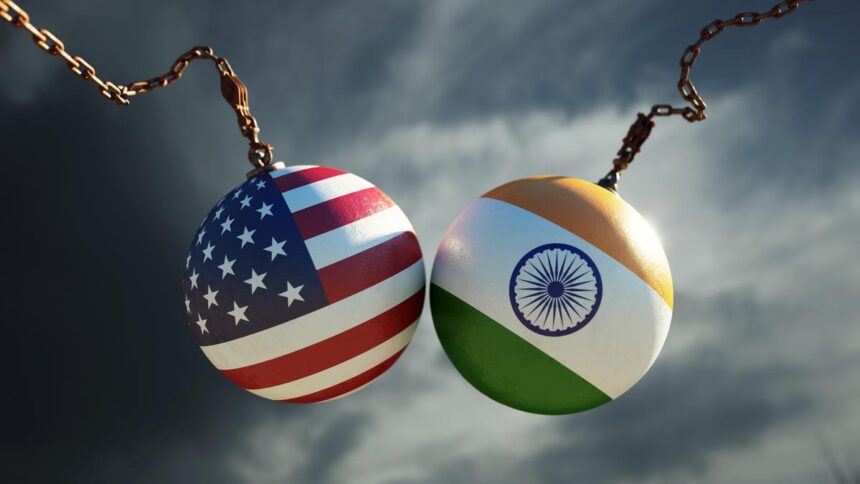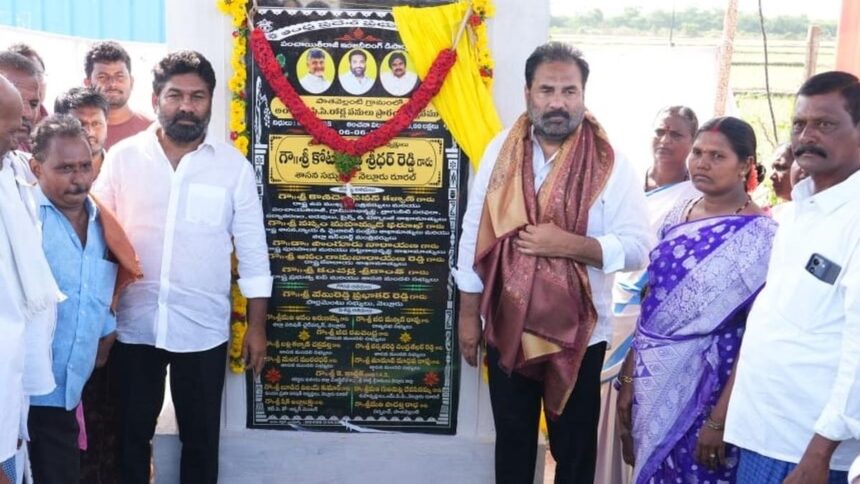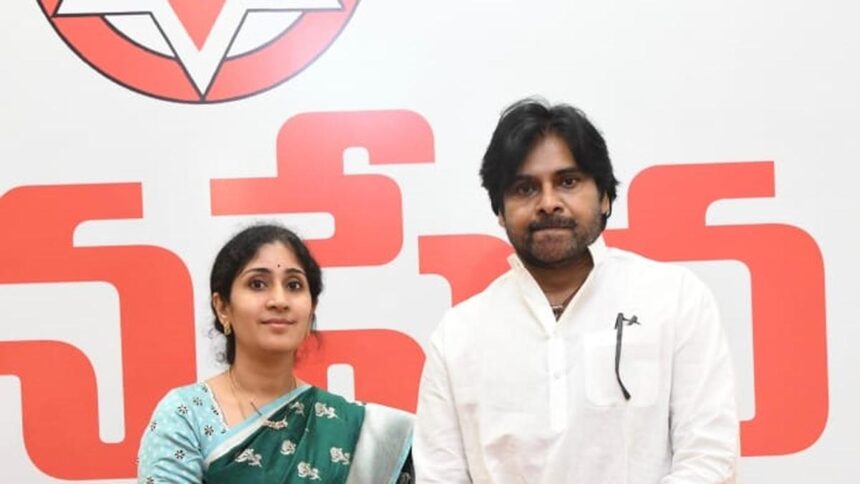
The poster and team behind Dalit Subbiah — Voice of the Rebels
| Photo Credit: Special Arrangement
Dalit Subbiah — Voice of the Rebels, a Tamil film by MKP Gridaran has won the Best Long Documentary at the 17th edition of the International Documentary and Short Film Festival of Kerala (IDSFFK) last week.
Any viewer who has watched the documentary, will assure you that it is not just an intense, loving tribute to a revolutionary who weaponised music till his last breath in 2022. It is instead the tale of a superstar who lent his defiant voice that demanded attention from all and sundry, particularly against fascism by caste Hindus.
Writer SV Rajadurai says that Dalit Subbiah was an organic intellectual. He describes him as a pedagogue, writer, poet, balladeer, composer of music and a vocalist. Born in Madurai in 1952, Dalit Subbiah, who lived a life committed to the revolution, was an erudite stage performer who wrote his own songs committed to the ideologies of Babasaheb Ambedkar, Periyar and Karl Marx.
To limit him and say that he sang for causes of the Dalit people in India would not do justice to his illustrious career. Through his cultural troupe Viduthalai Kalai Kuzhu, Dalit Subbiah or Lenin Subbiah as he was later christened, who looks like a docile man, explodes like an atom bomb, speaking of the likes of untouchability and Marxism. His strength lies in reading extensively and maintaining a sense of humour. The cause he was most committed to though, was the annihilation of caste.
A portion mid-way through the film captures the spirit of the Dalit Subbiah: “We sing about Periyar, never about Pillaiyar; we sing about Ambedkar, never about Ayyappan”.

Gridharan and his team of technicians and producers at Yaazhi Films (also produced by Pa Ranjith), say that the tone of this entire film may have been different if Dalit Subbiah was alive and gave bytes to the camera himself. The reason it is as different and feels like a loving tribute is because it is a celebration of his life. The film begins at his funeral but the discovery of his personality is what makes the film, says Manoj Leonel Jahson, the film’s producer.
“We first wanted to catalogue the lives of some select artistes performing at Pa Ranjith’s annual initiative Margazhil Makkal Isai, an event that has challenged the notion of performance venues being solely occupied by the privileged in arts. Dalit Subbiah, who was a star at the show, was ailing by the time we were looking to shoot the film. Within a few days, our producer Manoj, who had mooted the idea of this documentary series for Neelam, informed us of Dalit Subbiah’s demise. It is why the film begins at his home with chants of the red salute,” says the director. “The first time I saw what Dalit Subbiah looked like was on a kaneer anjali poster (a condolence poster),” he adds.
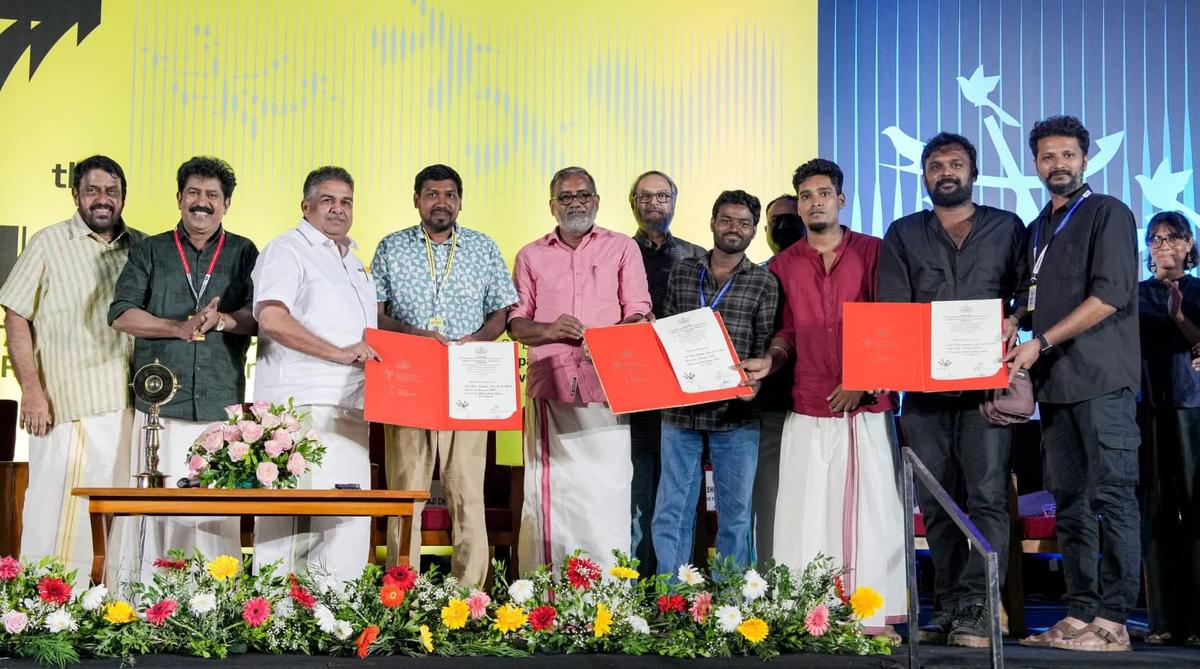
The winning team at IFFK
| Photo Credit:
Special Arrangement
Sathish Amruth, the cinematographer of the film, says that they did not anticipate a floating crowd of over 1,500 people at the funeral. Was it awkward capturing this deeply personal event? “We didn’t go in knowing what was going to happen but wanted to capture all that we could. After the event, interviews with his family and members of the Viduthalai Kalai Kuzhu were lined up. The story unravelled through them and we got to know the person that Dalit Subbiah was in the most intimate manner,” he says.

Both the director and the cinematographer who were on the road, particularly in Puducherry where Dalit Subbiah spent much of his life, said that they travelled about several thousand kilometres on a tight but sufficient budget for the film. With live sound, it became all the more pertinent to ensure that every element, sound, song and person was captured. The two add that every well-wisher of Dalit Subbiah who participated in the filming, provided them shelter, some delicious beef meals, and ample time between their day jobs to speak of a man they respected.
Editor of the film Dorai Prakash, says that an important takeaway is knowing that one must not lose one’s voice and must engage actively with one’s political and personal thoughts.
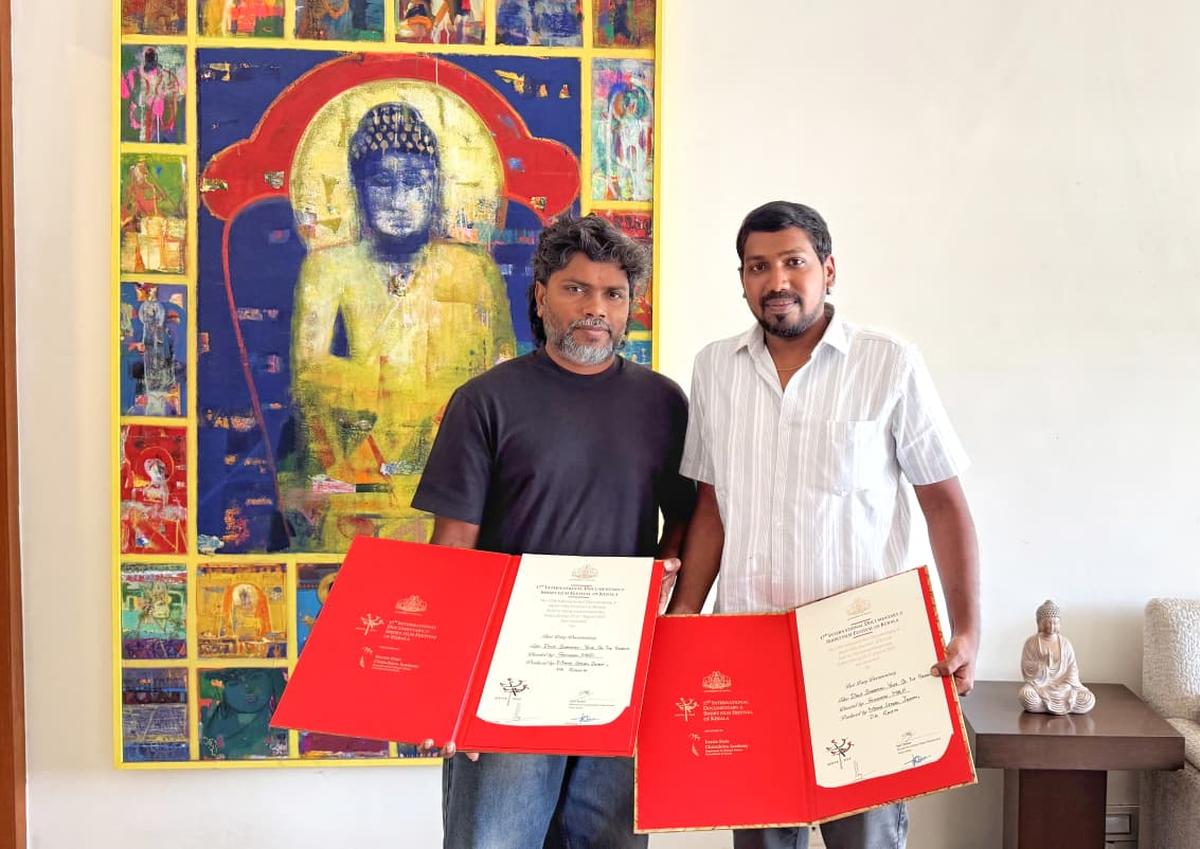
Producer-director Pa Ranjith and director Gridaran
| Photo Credit:
Special Arrangement
Director Gridaran says that he would like people across ideologies to watch the film, especially because the protagonist speaks of everyday problems with layered philosophy.
Producer Manoj who is also behind other films like Natchatiram Nagargirathu and Kuthuraivaal, says that increased exposure to Pa Ranjith, his cinema and his ventures has inspired him and several others to be actively politicised. It reflects in their films and they hope to produce many others aligned with this thought.
Published – September 04, 2025 06:00 am IST








